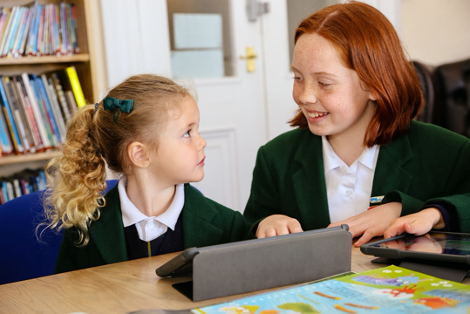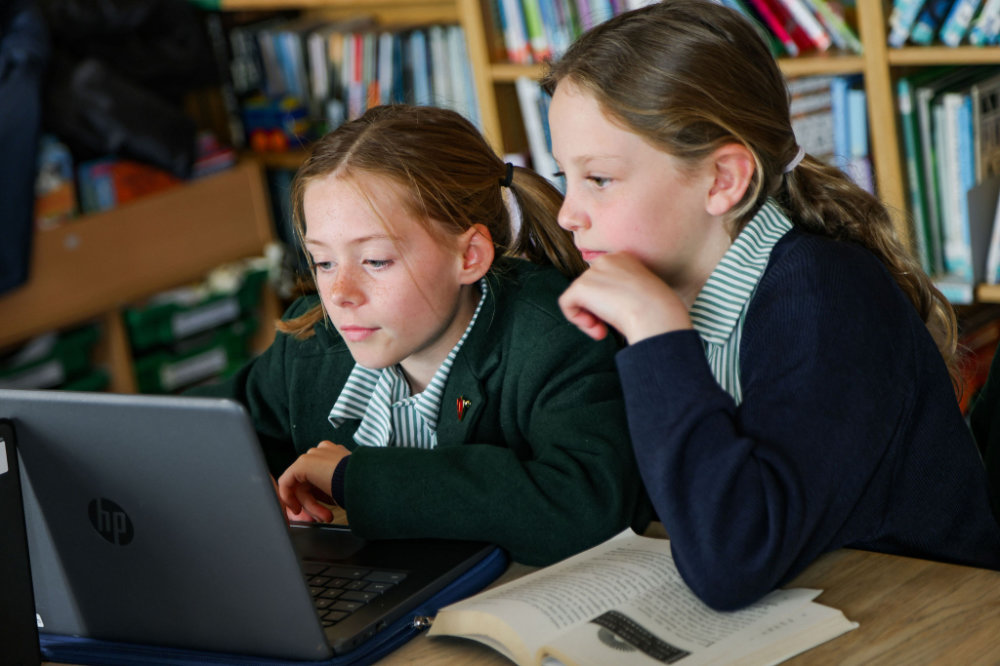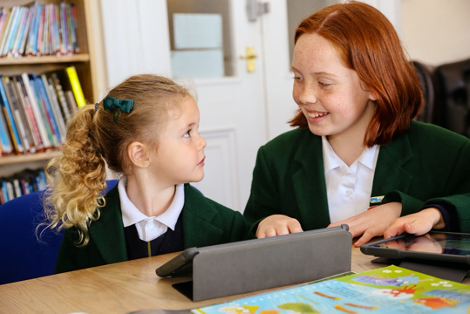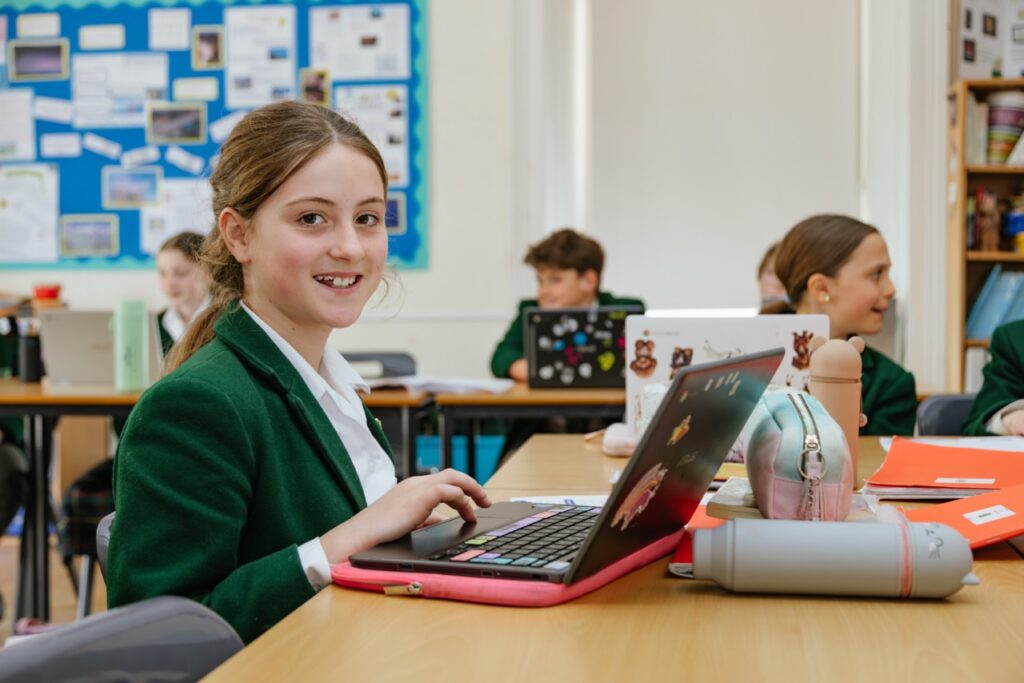Social media is part and parcel of society. Children are becoming more sophisticated and adept at using smart devices, apps and websites, which means that they are faced with a new level of risk that comes with this type of access to the world and the communication that comes with it.
However, risks don’t have to equate to problems if managed correctly. Children who never face risks in their lives won’t be able to learn how to deal with them safely and responsibly. As a conscientious parent, you can assist your child in understanding what the risks of the internet are and how to prevent them from becoming a wider issue.

What Are The Risks My Child May Encounter Online?
- Children may come into contact with sexual or violent content.
- Find content that promotes harmful behaviours.
- They might find false/inaccurate information.
- Read extreme views.
- Reveal of too much personal information.
- Actively or inadvertently get involved in bullying or hurtful behaviour.
In terms of the people your child could potentially come into contact with online, they might encounter bullies or people who intimidate or frighten them. People might also use fake profiles to hide behind. Other people to bear in mind are those who use the internet for grooming and stalking, identity theft and hacking.
What Could The Effects Be On My Child?
Now that we have established some of the main risks and people who pose a threat to your child’s welfare online, we can highlight a range of ways that they could become affected:
- Fall victim to exchanges that are too difficult to handle or unwelcome peer pressure.
- Become upset by what they’ve seen or been asked to do.
- Feel pressured into engaging in unacceptable behaviour that is also out of their comfort zone.
- Develop an online reputation that could result in issues in the future.
- Form ideas that are unrealistic and unhealthy.
What Can I Do To Help Minimise Online Safety Risks For My Child?
Websites and apps following good practice will provide safety advice guidelines and features. These can make a notable difference in how protected your child will be when they’re using them.
You should actively take the time to work through the safety and privacy features on the apps your child wants to download and use. Once you understand them, you can ensure that they understand the point of safety advice and how it protects them.
Here are some pointers to help you understand the online safety features on websites and apps which you can convey to your child:
1. Ask your child to show you which social media apps they use (if you haven’t already vetted what they download) and inquire about why they like them. Discuss how they use them and what it is that makes them so engaging.
2. Talk about how they can utilise privacy settings to make sure that the only people who can see posts and images are friends they want to allow.
3. Research whether any of their apps have geo-location enabled. If they do, their location could be being shared inadvertently.
4. Show your child how they can report unpleasant comments or use the block option to prevent people from upsetting them in future.
5. Inspect the tagging settings. This will allow you to check to see if your child’s identity is being revealed when others are resharing or posting images and videos online.
6. Teach them to get people’s consent before they share any photos online.
7. Lastly, you should encourage your child to speak to you if they come across something that upsets them
Starting The Online Safety Conversation
The topic of online safety can be tricky to approach without worrying your child. The best thing to do is offer them regular reassurance and speak about their online activity just as you would chat about their day at school. By doing this, you’re helping your child to feel comfortable about the subject, so if a time comes when they feel they need to raise an issue or concern, they won’t be apprehensive about talking to you. We also strongly recommend that you attend any talks on online safety given by your child’s school, like the workshops we run on children safely using the internet at St Peter’s Preparatory School.
Here are some helpful pointers to accompany online safety conversations with your child:
- Ask about their online friends and how they know them.
- Request that they show you what they’re having fun doing online or on apps at the moment; this will give you a better understanding of them.
- Show that you’re interested in their life, which includes what they’re doing when they’re online. It’s important to acknowledge that children will also be using the internet for researching their homework and not just to talk to their friends.
- Be encouraging and optimistic about discussing online worries so that it’s easier to have open conversations. Mentioning something you like about and app or noting how you have some slight concerns is useful.
- Take on board any reasons why your child feels the need to use apps or a website, even if you don’t think they are suitable. This gives you the opportunity to talk together and find a suitable outcome.

Top Tips For Keeping Your Child Safe Online
Here are a few key tips and rules for you to follow, so your child can browse appropriate material without being at risk.
Teach them the importance of privacy
It’s a good idea to create a set of ground rules whereby the child knows they must not reveal specific types of personal information, regardless of the circumstances. Names, phone numbers, email addresses, real addresses, passwords, schools and pictures should all be identified as off-limits.
The best policy is often honesty and openness with your child, in explaining that not everyone will have the best intentions and hope for the same kind of behaviour in return. Make sure they know that if they are unsure about anyone or anything, to let you know, and you can decide how to move forward together.
Set house rules and expectations
On a rainy day in the winter, when you’ve got lots to do, it may seem like an easy option to let your child have a little extra screen time. However, the need to set boundaries and restrict the length of time your child can communicate in virtual spaces is of paramount importance.
Keep track of how long your child has been online and look for any tell-tale signs that could signify something inappropriate is going on. For example, if your child becomes uncharacteristically angry or upset when you ask them to put down the iPad, that could be a sign of something else going on behind the scenes.
Know the rules
Most social media sites have a minimum age of people allowed to have accounts. This means regardless of how much your children may ask, they aren’t allowed a profile until they reach the age stated, and failure to comply can result in suspension.
Twitter, Facebook, Instagram, Pinterest, Tumblr, Reddit and Snapchat require users to be at least 13, before creating an account. WhatsApp requires a minimum age of 16, while platforms such as YouTube have a minimum age of 18, although children aged 13-17 can subscribe with parental permission.
Have regular conversations about the internet
Modern lifestyles are busy, to say the least, and not everyone can find the time to sit and discuss the dangers of the internet in full detail on regular occasions. However, it’s important to regularly check-in with your children, be it on the way back from swimming lessons or over breakfast before the dash to school. Talk to them about what their devices can do and how they use them, so you can keep an eye out for any warning signs that may need addressing.
You can also create profiles on the same platforms and connect with your children, but there’s a fine line between keeping them safe and invading their privacy, depending on their age.
Reiterate the dangers
It’s important not to hide or mask the dangers of the internet in an attempt to protect your child. Make sure they know that someone they have met online might not be who they say they are, and what they could potentially do with the information given to them.
Remind them that if anything makes them feel uncomfortable or worried, they log-out and find a trusted adult to confide in about the situation. Ask open-ended questions such as ‘what do you think someone could do with your name, age and location?’ to encourage them to think of and acknowledge the dangers themselves.
We hope that this information is helpful for you so that you can have beneficial conversations with your child that will reassure everyone.
Here at St Peter’s Prep, we are an independent pre-school in Devon that believes in helping your child get the best journey through their school life, which includes developing online skills and safety techniques.









